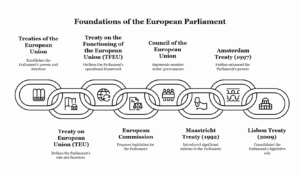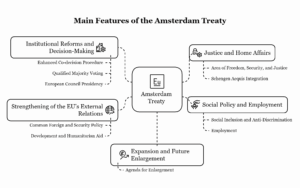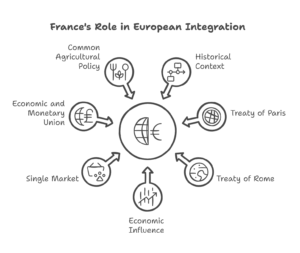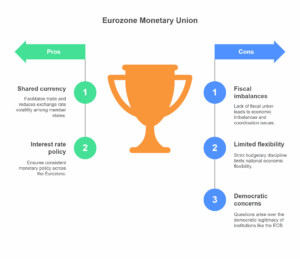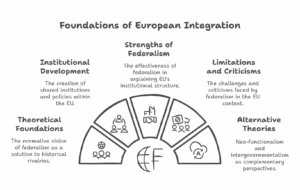-
Continue reading →: Globalization has altered the discourse on the centre and state relations
Globalization, characterized by the increasing interconnectedness of economies, societies, and cultures across national boundaries, has significantly influenced the nature of federal relations in India, particularly the dynamic between the Centre and the States. Since the economic liberalization policies initiated in 1991, globalization has altered the way the Indian federal structure…
-
Continue reading →: Regional disparities in human development
Regional disparities in human development refer to the unequal distribution of economic, social, and political resources and opportunities across different regions of a country, leading to variations in the overall quality of life, access to education, healthcare, employment, and infrastructure. These disparities are a significant challenge in many countries, including…
-
Continue reading →: Protest movements and social movements
Protest movements and social movements are critical elements of democratic societies, serving as channels through which marginalized or disaffected groups express their demands, challenge existing power structures, and seek social change. These movements often emerge in response to perceived injustices, inequalities, or governmental failures. Protest movements are typically aimed at…
-
Continue reading →: The party system in the states has undergone significant transformation since the late 1980s
The party system in India’s states has indeed undergone significant transformation since the late 1980s, driven by a combination of social, political, economic, and electoral factors. These transformations reflect broader shifts in the political landscape, marked by changes in the nature of electoral competition, the emergence of regional parties, the…
-
Continue reading →: Post-modernist framework to study state politics
The post-modernist framework offers a critical and analytical approach to studying state politics, challenging traditional, often reductionist, perspectives on political structures and power dynamics. Post-modernism is characterized by a focus on discourse, narratives, and the deconstruction of traditional ideas about politics, power, and the state. Through these elements, the post-modernist…
-
Continue reading →: Reasons for the demands for statehood since independence
The demand for statehood in India since independence has been a recurring and significant aspect of the country’s political landscape. These demands stem from various social, economic, cultural, and political factors, often arising from the specific regional aspirations of certain groups and communities. The movement for statehood is not merely…
-
Continue reading →: The response of the nationalists to caste and untouchability
The response of Indian nationalists to caste and untouchability was multifaceted, reflecting the broader struggle for independence and social reform during the colonial period. Nationalist leaders, although united in the common goal of attaining independence from British rule, exhibited varying views and approaches when it came to the issue of…
-
 Continue reading →: Discuss the role of France in shaping institutions and policy processes of the European Union.
Continue reading →: Discuss the role of France in shaping institutions and policy processes of the European Union.France has played a central role in the creation, development, and shaping of the European Union (EU), especially in the formative years following the end of World War II. As one of the founding members of both the European Coal and Steel Community (ECSC) and the European Economic Community (EEC),…
-
Continue reading →: The Impact of Globalisation on State Politics
Globalization, the process of increasing interconnectedness and interdependence among countries, has had a profound effect on India’s political landscape. It has altered the dynamics between the state, society, and the global economy, reshaping not only India’s economic policies but also its political structure and relations. While globalization has led to…
-
Continue reading →: Linguistic Conflict in Assam
Linguistic conflict in Assam has been one of the most prominent and complex issues in the political history of the state. Located in the northeastern region of India, Assam has a rich and diverse linguistic landscape. The primary languages spoken in Assam are Assamese, Bengali, and various indigenous tribal languages.…
-
Continue reading →: Impact of Privatisation on the Working Class
The privatization of industries, services, and public enterprises has been one of the most significant economic reforms in India since the 1990s. The policy of liberalization, initiated under Prime Minister P.V. Narasimha Rao and his Finance Minister Dr. Manmohan Singh in 1991, aimed at reducing the role of the state…
-
Continue reading →: Impact of Agrarian Transformation on Indian Politics
Agrarian transformation refers to significant changes in agricultural practices, land ownership, rural economy, and social structures that affect the agrarian community’s role in society. In India, the agrarian sector has been the backbone of the economy, providing livelihood for a large portion of the population, especially in rural areas. The…
WELCOME!
Yearly Archive
Categories List
- biodiversity
- Canada
- culture
- democracy
- economy
- European Union
- ignou
- india
- International Relations
- nature
- news
- political-philosophy
- political-science
- sustainability
- Uncategorized
- UPSC
Tag Cloud
agriculture ai business Canada china climate climate-change conservation diversity ethics european-union farming feminism finance gandhi health history ignou india KNOWLEDGE liberty mahatma-gandhi marxism nationalism nonviolence philosophy political-philosophy political-science political-theory politics poverty PSC religion renewable-energy russia socialism sociology sustainability sustainable-agriculture sustainable-living technology terrorism travel UPSC women
Term List
- africa
- agriculture
- ai
- aristotle
- bangladesh
- bjp
- business
- Canada
- china
- christianity
- climate
- climate-change
- conservation
- critical-theory
- digital-marketing
- diversity
- ecology
- elections
- ethics
- europe
- european-union
- faith
- farming
- fascism
- featured
- feminism
- feminist
- finance
- frankfurt-school
- freedom
- fundamentalism
- gandh
- gandhi
- gardening
- gender
- gender-equality
- global-warming
- government
- health
- herbs
- history
- human-rights
- ignou
- india
- inequality
- intellectual-property
- italy
- karl-marx
- KNOWLEDGE
- language
- law
- learning
- lenin
- liberty
- lifestyle
- linguistics
- mahatma-gandhi
- marx
- marxism
- mental-health
- MPS
- multicultural
- multiculturalism
- nationalism
- natural-remedies
- nonviolence
- organic-farming
- patents
- philosophy
- political-philosophy
- political-science
- political-theory
- politics
- pollution
- poverty
- PSC
- recycling
- religion
- renewable-energy
- russia
- socialism
- sociology
- soviet-union
- spirituality
- sustainability
- sustainable-agriculture
- sustainable-living
- teaching
- technology
- terrorism
- trademarks
- travel
- UPSC
- water
- water-conservation
- wellness
- wildlife
- women
- women-empowerment

